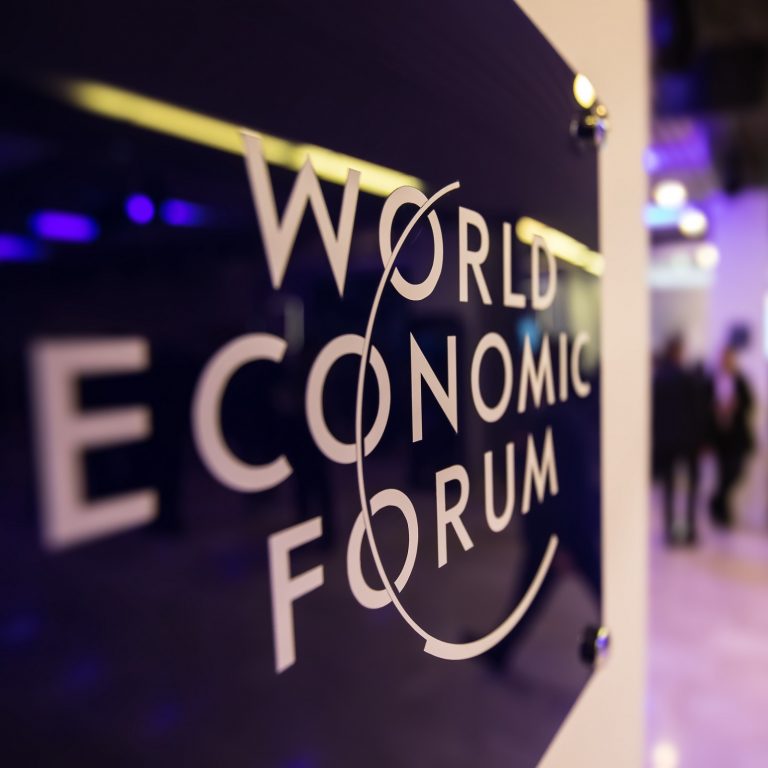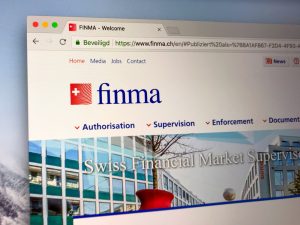
In this edition of The Daily, we look at the decision to add cryptocurrencies as a topic of discussion at the next World Economic Forum in Davos. We also focus on the latest recommendations on digital assets by Switzerland’s financial regulator, as well as a Venezuelan state’s plans to use the petro in cross-border trade with Brazil.
Also read: Crypto Game Developer Raises $15M, Bitcoin Pioneer Faces Lawsuit
WEF to Focus on Interaction Between
States and the Cryptocurrency Industry
Globalization and the interaction between governments and participants in the fourth industrial revolution — including players from the cryptocurrency industry — will be the main theme of the World Economic Forum (WEF) in Davos from Jan. 22 to 25, 2019. The annual meeting in the Swiss mountain resort brings together over 2,000 business and political leaders, economists and journalists to discuss pressing economic issues and “shape global, regional and industry agendas.”
The WEF’s president, Børge Brende, announced the theme of the next event while speaking to journalists in Geneva. “For us, as an international organization, it is very important to ensure global cooperation, because what we face today — geopolitical and geoeconomic challenges in a multipolar world, the challenges and the opportunities associated with the fourth industrial revolution — needs more cooperation,” he said, as quoted by Russian news agency RIA Novosti.

The participants in the high-level forum will discuss the establishment of a general framework for the interaction between these different parties. Brende made it clear he was referring to cooperation between states and individual players involved in the development of new technologies like those associated with cryptocurrencies and distributed ledgers. The WEF will also focus on topics such as Brexit and the changing economic climate in the EU.
FINMA Estimates the Risk of
Cryptocurrencies at 8 Times Their Value
The Swiss Financial Market Supervisory Authority (FINMA) believes banks should estimate the risks associated with cryptocurrency assets at eight times their market value. That’s according to a confidential letter sent to Expert Suisse, an association representing Swiss trustees and accountants. The correspondence, seen by Swissinfo, gives an idea about FINMA’s current stance on the matter — the regulator considers cryptocurrencies as volatile assets, despite the low levels of volatility seen in recent months.
 FINMA also wants to limit cryptocurrency trading activities to 4 percent of the total capital of financial institutions and says banks should report when they’ve reached that level. The recommendations mean they will be expected to dedicate considerably more capital to cover potential losses from cryptocurrency investments in comparison to most other assets.
FINMA also wants to limit cryptocurrency trading activities to 4 percent of the total capital of financial institutions and says banks should report when they’ve reached that level. The recommendations mean they will be expected to dedicate considerably more capital to cover potential losses from cryptocurrency investments in comparison to most other assets.
The Swiss regulator has not yet adopted an official position on the inclusion of digital assets in the requirements regarding capital and liquidity ratios under Basel III, which is an international set of measures developed by the Basel Committee on Banking Supervision in the aftermath of the last major financial crisis. The rules were designed to strengthen the regulation, supervision and risk management of financial institutions. Until the Basel Committee makes its recommendations regarding cryptoassets, FINMA advises players in the financial sector to “assign a flat risk weight of 800 percent to cover market and credit risks.”
Venezuelan and Brazilian States
to Trade with the Petro
Authorities in the Venezuelan state of Bolívar intend to promote the adoption of the national cryptocurrency, the petro, in regional trade with the neighboring Brazilian state of Roraima, Prensa Latina has reported. Justo Noguera, governor of Bolívar, said the digital coin will be used by companies from the state to purchase food, medicine and other goods from businesses based in northern Brazil. The initiative also covers imports of spare parts and supplies for the steel works in Ciudad Guayana.
 Venezuela officially launched the public sale of its government-controlled cryptocurrency last week. The petro can now be purchased with a number of fiat currencies and cryptocurrencies. Venezuelan banks have also started using the oil-backed coin to denominate customer bank balances, as news.Bitcoin.com reported earlier today. Both El Petro and the redenominated, petro-pegged Bolívar Soberano now serve as units of account in the crisis-hit South American country.
Venezuela officially launched the public sale of its government-controlled cryptocurrency last week. The petro can now be purchased with a number of fiat currencies and cryptocurrencies. Venezuelan banks have also started using the oil-backed coin to denominate customer bank balances, as news.Bitcoin.com reported earlier today. Both El Petro and the redenominated, petro-pegged Bolívar Soberano now serve as units of account in the crisis-hit South American country.
Meanwhile, Venezuela’s trading volume on Localbitcoins has reached new record highs. According to Coindance, Venezuelans traded over 1,070 BTC in the week of Nov. 3, 2018. The price of dash, as well as its trade volume, also jumped recently after the launch of Dash Text, a service allowing transfers of the cryptocurrency via SMS.
What are your thoughts on today’s news tidbits? Tell us in the comments section.
Images courtesy of Shutterstock.
Make sure you do not miss any important Bitcoin-related news! Follow our news feed any which way you prefer; via Twitter, Facebook, Telegram, RSS or email (scroll down to the bottom of this page to subscribe). We’ve got daily, weekly and quarterly summaries in newsletter form. Bitcoin never sleeps. Neither do we.
The post The Daily: Cryptocurrencies on the Davos Agenda, FINMA Issues Rules for Cryptoassets appeared first on Bitcoin News.
from Bitcoin News https://ift.tt/2JHILA5
via BITCOIN NEWS
from BITCOIN NEWS https://ift.tt/2Os9IZh
via Bitcoin News Update
from Bitcoin News Update https://ift.tt/2SQJ9As
via IFTTT